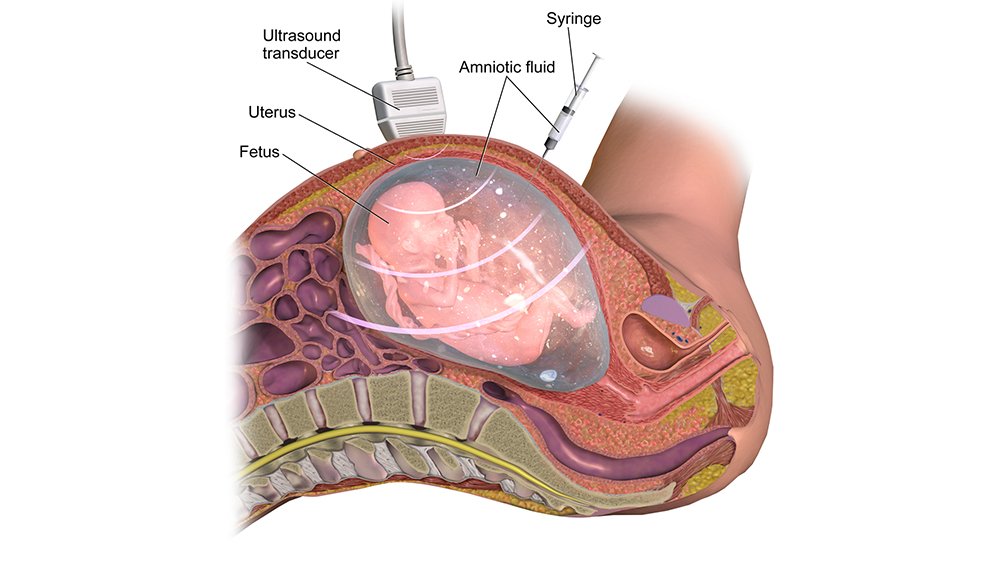
Amniocentesis is a prenatal test typically performed between the 15th and 20th weeks of pregnancy. It involves carefully removing a small amount of amniotic fluid, which surrounds and protects the fetus, using a thin needle guided by ultrasound imaging. This fluid contains fetal cells that can be analyzed for genetic and chromosomal abnormalities, such as Down syndrome, cystic fibrosis, and spina bifida.
Why Might It Be Recommended?
Your doctor may recommend amniocentesis if you have certain risk factors, such as:
- Advanced maternal age (35 or older)
- Family history of a genetic disorder
- Abnormal results from screening tests like first-trimester screening or quad screen
- Personal concerns about potential fetal health issues
Considerations:
- Amniocentesis is a relatively safe procedure, but it carries a small risk of miscarriage, infection, and Rh sensitization.
- The test is highly accurate, but it cannot detect all possible genetic or chromosomal problems.
- Receiving results can take several weeks, and genetic counseling is often recommended to help you understand the implications.
Important:
Amniocentesis is a personal decision, and it’s crucial to discuss all potential benefits and risks with your doctor thoroughly before making a choice. They can help you weigh the options and determine if this test is right for you based on your individual circumstances and pregnancy.
Remember, consulting with your healthcare provider is essential for receiving personalized advice and making informed decisions about your prenatal care.We encourage you to seek their guidance for questions and concerns specific to your pregnancy.


